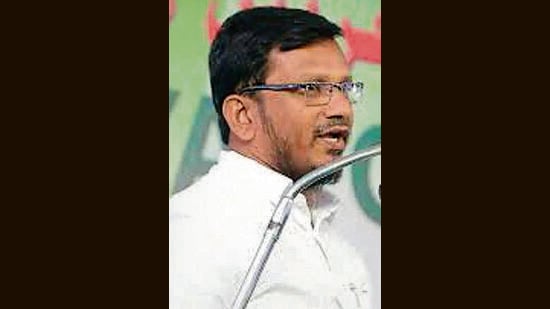‘We need to know impact on civilians if the UCC is passed’: TDP minority cell general secretary Fathullah Mohammad
The Bharatiya Janata Party (BJP) needs to consult stakeholders, educators, and religious heads of the Muslim community before introducing changes to the Waqf Amendment Bill, and should have discussed with its alliance partners before calling for a discussion on the Uniform Civil Code (UCC), Fathullah Mohammad, the general secretary of the Telugu Desam Party (TDP) minority cell, said in an interview with Hindustan Times.
The Bharatiya Janata Party (BJP) needs to consult stakeholders, educators, and religious heads of the Muslim community before introducing changes to the Waqf Amendment Bill, and should have discussed with its alliance partners before calling for a discussion on the Uniform Civil Code (UCC), Fathullah Mohammad, the general secretary of the Telugu Desam Party (TDP) minority cell, said in an interview with Hindustan Times. Edited excerpts:

The Prime Minister has called for wide discussion on the Uniform Civil Code. What are your views on this?
We need to know what aspects of civilian life will be impacted if the UCC is passed. Ours is a secular country and the Indian Constitution allows every citizen to practice their religion in accordance to their faith system. The BJP should have ideally discussed this issue with the alliance partners before announcing it publicly.
As an alliance partner of the BJP, how far have you been able to influence them to reconsider certain amendments to the Waqf bill?
It is because of the nudge from our leader, Chandrababu Naidu that the Joint Parliamentary Committee (JPC) has been set up to discuss the proposed amendments to the bill. In fact, the TDP MP Ganti Harish Madhur brought it up in the parliament and asked for a discussion among members in both Houses.
Now that the JPC has been constituted, what are you your expectations of the 21-member committee?
From the TDP, our research team has submitted our observations to the JPC. We expect them to be incorporated. We have also suggested that the JPC conduct multiple rounds of consultations with the four prominent Muslim organisations that understand the Sharia law - Tablighi Jamaat, Ah le Hadees, Ah le Sunnat, and the Muslim Personal Law Board - and take their suggestions into consideration.
Which among the 40 amendments do you have a bone of contention with?
There are several of them, but some of them stand out because they are jarring. While the inclusion of women in the Waqf Board is welcome, the amendment doesn’t specify they need to be Muslim practitioners. This is an aberration because the Waqf is a faith-based institution and we would need someone who is invested in our faith than government-appointed nominees. The other one being the proposal of replacing a sitting judge with a retired judge in the Waqf tribunal and the state Waqf board powers have also been considerably reduced.
Do you think there is a case for reform in the Waqf Bill now that the government has introduced these amendments?
Amendments are always welcome. Every time the government introduced amendments to existing laws, it was always to empower and strengthen them. It is the first time that a number of amendments have been introduced to weaken an institution. That said, our institutions have always been progressive and been open to reform.
In Andhra, the state Waqf board is the second largest owner of land after the railways. If their board has to compromise lands of its owns, will you resort to legal recourse?
All land issues need to be resolved amicably. From Srinagar to Kanyakumari, everyone encroaches upon land across faiths. It is made out to be a case against Muslims. I am not sure how not having Muslims on the Waqf Central Council or the Waqf Board helps resolve issues. But we will seek court intervention if the reform leads to danger bells ringing and our lands being compromised.
If the amendments to the bill come through, what do you think the impact would be in Andhra?
We do not foresee a situation where the bill would be passed without suggestions from our religious institutions. However, with the TDP netting more than 70% of the minority vote in the state, it would have an adverse impact in the Rayalaseema region where nearly 50% of the Muslims reside in Andhra. The TDP would then be seen as a party that could not have any influence over the centre.






